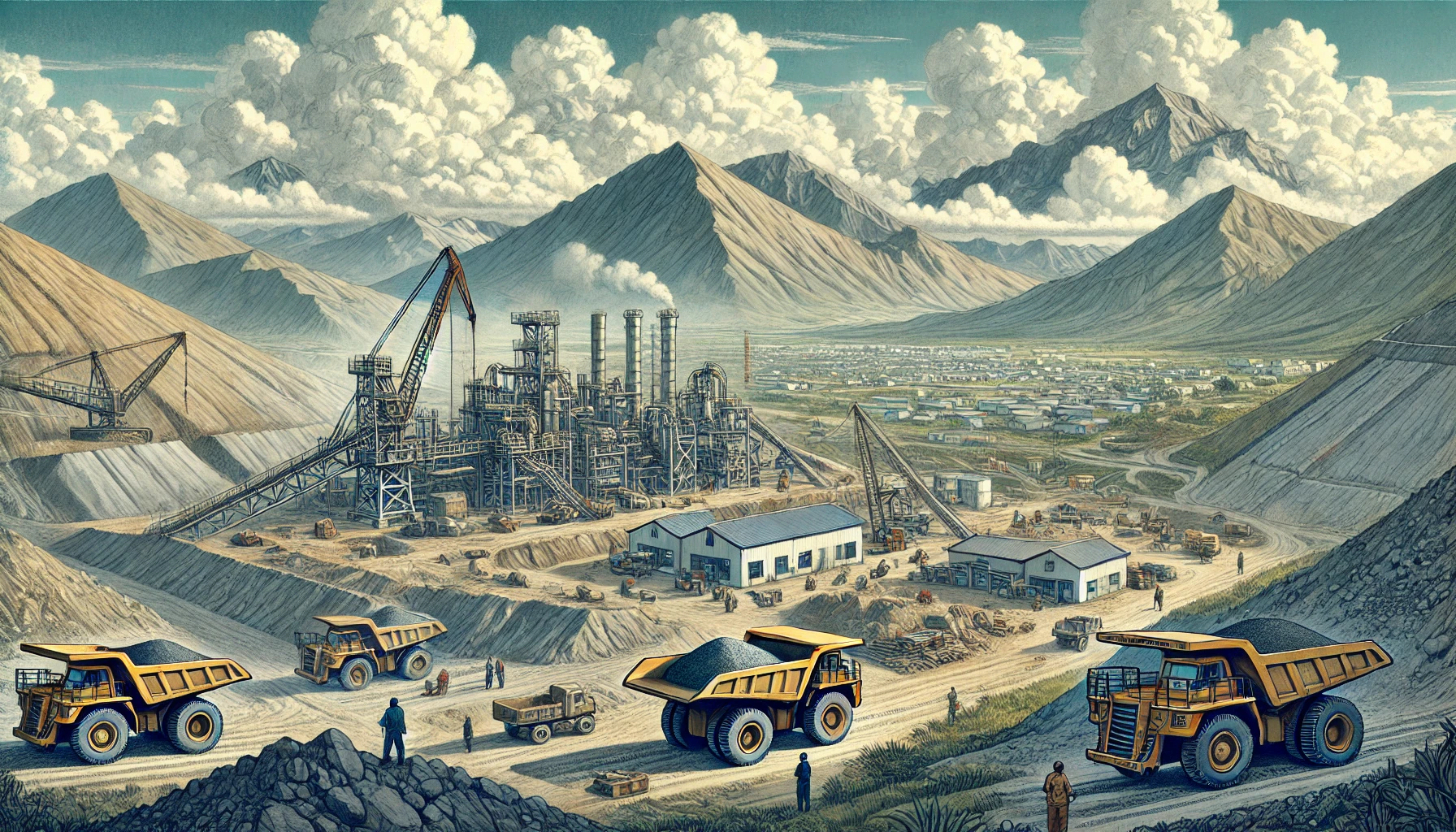From Risk to Revenue: Stabilizing Mining Investments in High-Potential Developing Nations
The study highlights how political risks in resource-rich developing countries deter mining investments, limiting both local revenue and global mineral supplies critical for the green energy transition. Stabilizing tax policies and improving governance could unlock these nations’ mining potential and support sustainable development.

A recent study by researchers from the World Bank’s Macroeconomics, Trade, and Investment Global Practice explores how political risk factors in developing countries influence mining investments and limit government revenue potential, especially as demand grows for green minerals like copper essential to the energy transition. Authors Graham A. Davis, Chadi Bou Habib, Gaute Solheim, and Martin Lokanc investigate how unstable governance, poor infrastructure, and high-risk environments reduce mining activity, ultimately affecting the volume of materials mined and the resource rents that could benefit these host countries. Using a mathematical model, the study underscores that political instability, corruption, expropriation risks, and inconsistent regulations can raise the threshold for mining companies’ willingness to invest. Such risks often lead companies to demand higher returns or to focus on high-grade deposits, leaving significant resources unexploited and missing the chance to meet anticipated global demand for minerals that support green energy systems. The researchers suggest that progressive profit-based taxes are more effective than cash flow taxes for maximizing government revenue from these projects without overly deterring investment. They argue that governments in developing nations can benefit more from implementing stable, progressive taxation systems, which ensure tax revenue from resource rents without suppressing mining activity essential to their economies.
Political Instability and Lost Opportunities for Resource Rent
The report’s analysis relies on the S&P Capital IQ database and suggests that countries with poor governance, weak institutions, limited infrastructure, and a high-risk investment environment experience significantly lower exploration and investment in mining. This impact is particularly evident in parts of Africa, which hold substantial deposits of minerals critical to the energy transition yet are not realizing their economic potential. Many of these nations, which could benefit from the increased revenue tied to green mineral extraction, see potential investments diminish or redirected to countries with more predictable regulatory environments. In such risky climates, companies are incentivized to “high-grade” mines concentrating on extracting higher-grade ores to justify the investment, despite leaving considerable deposits unmined. This cautious approach results in suboptimal mineral extraction, as lower-grade deposits are deemed uneconomical under high-risk conditions. The researchers argue that stabilizing tax regimes and improving infrastructure could make these countries more attractive to investors and broaden the range of economically viable projects. As it stands, political risks discourage investment not only through direct effects, such as increased operating costs due to corruption or legal battles over tenure security but also indirectly, as firms apply a higher discount rate to account for perceived risks, ultimately lowering the project’s calculated net present value. The study observes that in countries with frequent political or regulatory disruptions, investors set higher investment benchmarks to offset uncertainties, focusing on immediate revenue recovery and preferring higher-grade projects to mitigate risks of future expropriation or regulatory shifts.
Progressive Taxation Models to Attract Investment
From a tax policy perspective, the authors recommend a model that avoids upfront ex-ante or ex-post resource rent taxes due to their limited measurability and potential to discourage investment. Instead, they suggest that stable, progressive profit taxes, similar to standard profit taxes in other sectors, are effective in capturing resource rents from mining without the adverse effects associated with more complex or unpredictable tax policies. Countries that develop clear, structured tax systems could provide a more stable investment environment, incentivizing long-term investments in mineral extraction and generating significant tax revenue over time. Furthermore, the paper proposes that international financial institutions (IFIs) such as the World Bank could play a key role by supporting such countries to stabilize their governance structures, improve infrastructure, and implement resilient, transparent tax regimes. These actions would reduce perceived political risk and help establish credible commitments between host countries and investors.
Critical Minerals and the Global Energy Transition
The researchers emphasize that unrealized mineral deposits in politically unstable regions represent not only lost economic opportunities for host countries but also a global shortfall in essential mineral supplies. This situation is especially concerning for the global green energy transition, which relies on minerals such as copper. Without sufficient investment in politically risky areas like the Democratic Republic of the Congo, where substantial copper deposits exist, there is an increasing likelihood of falling short of the global mineral output required to meet decarbonization goals. This constraint may lead to rising prices and could potentially slow the transition to renewable energy sources due to supply chain issues. By investing in the development of geological surveys, strengthening institutions, and establishing stable tax frameworks, host countries could make themselves more attractive for mining investments, potentially unlocking additional resources and securing sustainable revenue streams from mining rents.
Balancing Local and Global Needs for Sustainable Mineral Extraction
The study paints a clear picture of how political risks in developing nations impact mining investments, with significant implications for both local economies and global mineral supply chains. While the demand for minerals continues to rise with the energy transition, the underutilization of mineral-rich areas due to perceived risks and unstable governance poses a serious challenge to meeting this demand sustainably. The paper makes a compelling case for developing stable, transparent policies and for international assistance to mitigate political risks, improve infrastructure, and support countries in tapping into their natural resources more fully.
- FIRST PUBLISHED IN:
- Devdiscourse










